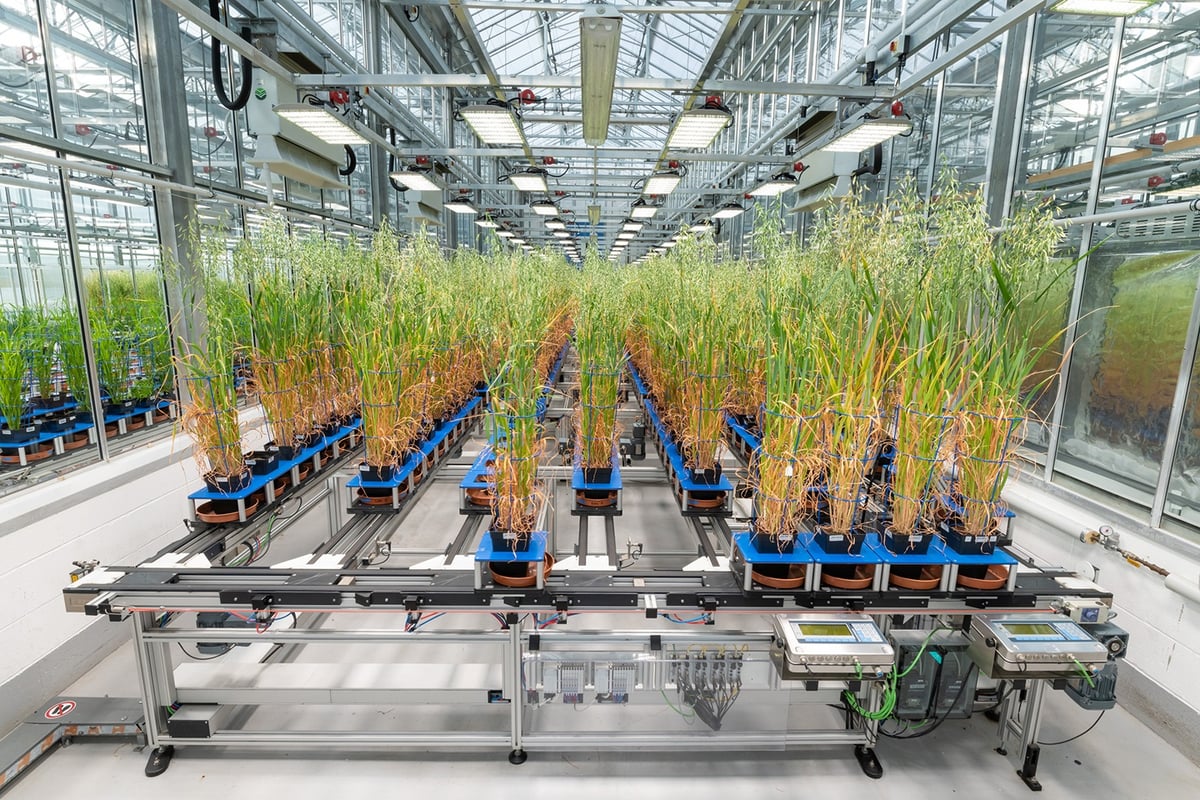Science
AI and Biotechnology Set to Revolutionize Global Crop Production

A comprehensive review by an international team of researchers has revealed that artificial intelligence (AI) and biotechnology could significantly enhance global crop production. This research, published in the esteemed journal Nature, highlights how these technologies can contribute to creating more resilient food systems amid challenges posed by climate change, pests, and population growth.
The team, which includes experts from Aberystwyth University in the UK, along with researchers from China, the USA, and other parts of Europe, has developed a strategic roadmap for integrating AI with various advanced biotechnological methods. These methods encompass genome editing, protein design, high-throughput phenotyping, and omics technologies that analyze the genetic and chemical compositions of plants.
Professor John Doonan, Director of the National Plant Phenomics Centre at Aberystwyth University’s Institute of Biological, Environmental and Rural Sciences (IBERS), emphasized the potential of these techniques. He stated, “Think of it like designing and building a bridge. We now have the tools to engineer crops with similar precision — combining biological insights with AI to build plants that can withstand drought, disease, and other stresses.”
The review elaborates on the capabilities of AI in predicting optimal gene combinations that enhance yield, nutritional value, and stress tolerance. Additionally, it explores the design of novel proteins to boost plant defenses and performance, while also integrating complex datasets to facilitate more efficient breeding decisions.
In his remarks, Professor Doonan further explained, “This is about building resilience into our crops from the ground up. By uniting AI with cutting-edge biotechnology and sustainable farming practices, we can future-proof food production for generations to come.”
This research aligns with the strategic goals of IBERS, focusing on the development of resilient crops. It received support from the Biotechnology and Biological Sciences Research Council (BBSRC) through its Resilient Crops programme, alongside backing from the Engineering and Physical Sciences Research Council (EPSRC) as part of its AI for Net Zero initiative.
The implications of this research are vast, suggesting that the adoption of these advanced technologies could accelerate the development of crops that are not only more productive but also sustainable and adaptable to changing environmental conditions. The full findings of this significant study were published in Nature last week, marking a pivotal moment in the intersection of AI and agriculture.
As global food demands continue to rise, the integration of AI and biotechnology may provide essential solutions for enhancing agricultural output and ensuring food security worldwide.
-

 Health3 months ago
Health3 months agoNeurologist Warns Excessive Use of Supplements Can Harm Brain
-

 Health3 months ago
Health3 months agoFiona Phillips’ Husband Shares Heartfelt Update on Her Alzheimer’s Journey
-

 Science2 months ago
Science2 months agoBrian Cox Addresses Claims of Alien Probe in 3I/ATLAS Discovery
-

 Science2 months ago
Science2 months agoNASA Investigates Unusual Comet 3I/ATLAS; New Findings Emerge
-

 Science1 month ago
Science1 month agoScientists Examine 3I/ATLAS: Alien Artifact or Cosmic Oddity?
-

 Entertainment5 months ago
Entertainment5 months agoKerry Katona Discusses Future Baby Plans and Brian McFadden’s Wedding
-

 Science1 month ago
Science1 month agoNASA Investigates Speedy Object 3I/ATLAS, Sparking Speculation
-

 Entertainment4 months ago
Entertainment4 months agoEmmerdale Faces Tension as Dylan and April’s Lives Hang in the Balance
-

 World3 months ago
World3 months agoCole Palmer’s Cryptic Message to Kobbie Mainoo Following Loan Talks
-

 Science1 month ago
Science1 month agoNASA Scientists Explore Origins of 3I/ATLAS, a Fast-Moving Visitor
-

 Entertainment2 months ago
Entertainment2 months agoLewis Cope Addresses Accusations of Dance Training Advantage
-

 Entertainment3 months ago
Entertainment3 months agoMajor Cast Changes at Coronation Street: Exits and Returns in 2025









